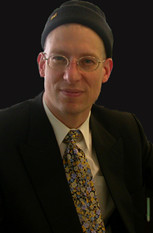Department of English Language & Literature

Department of English Language &Literature
Before I came to Seoul, my hometown was New York City, and I still pay attention to news from New York. These days the news makes me sad—not only is there the COVID-19 problem, but, also, New York seems to be experiencing an outbreak of gun murders and crime.
This surprises me. Though New York, as America’s archetypal city, has an image of crime and violence, the reality was always much more peaceful. In 1991, when Los Angeles police beat and killed Rodney King, provoking rioting in several cities, my friend James Bradley’s response was telling.
“Those people are crazy,” he said. “They’re tearing up their own neighborhood. We would never do that in New York.”
Times, it seems, have changed. But, then again, maybe not that much.
It’s the summer of 1992. New York. The South Bronx—the corner of Longwood Avenue and Beck Street, near Hunt’s Point. Three police cars come roaring up onto the curb, sirens screaming and lights flashing. Six police officers jump out with guns in their hands, and there’s one 20-year-old guy in the middle, looking a little surprised. I’m surprised too because I know him. My friend Bob Cameron’s nephew Shawn—we played dominoes and chess together a couple of times.
“Hey, Shawn! Are you o.k.? What’s going on?” I shout.
“Stand back! This is an arrest,” says one officer. Another police car screeches onto the scene.
The police look very serious, even scared, and their guns look very large. Does Shawn have a gun too? We’re all standing about five meters away from each other. If someone starts shooting, somebody dies. I back away.
“I’m OK,” says Shawn, as he gets into the back of a police car. “I’ll go to the precinct,” I say, “to make sure.”
Shawn was OK. Luckily, this was not another case like George Floyd, Breonna Taylor, Michael Brown, Freddie Gray, Philando Castile, Rodney King... It turned out that Shawn had an argument. Someone called the police and said he had a gun. By the time the police got there, the argument was over and there was no gun.
At the time, I thought this was just an example of what they call the “biggest gang on the street” (police) abusing its power. But, if you haven’t guessed already, race was an issue too. Shawn was black. The police are afraid of black people. Yes, loose gun laws are part of the problem. But, as #BlackLivesMatter tells us, guns or no guns, police are particularly scared of black people because of negative stereotypes that grew over a long history of social division.
Why should we care? In Seoul, minorities may get unfair treatment, but they’re rarely murdered. True. But I think we must take the events in the U.S. as a warning about what might happen in Korea if our social divisions become too strong.
There are disturbing signs. When political leaders promote conspiracy theories and encourage their followers to ignore COVID-19 social distancing, this sparks division. When political parties are so intent on opposing each other that they boycott assembly sessions, this sparks division. When doctors and the government are so fixated on quotas for medical schools that neither side really wants to solve problems with healthcare in rural areas, this sparks division. When the income of the top 10 percent keeps growing, but the bottom 10 percent has stayed the same for two decades, this sparks division. Sorry if I’ve misrepresented the positions of any of the groups I just mentioned—but I don’t think my impressions are very far off those most people have. The evidence seems clear that our country is becoming more divided, just like the U.S.A.
#BlackLivesMatter is serving as a wakeup call to the U.S. to solve the worst of its own social divisions. Let the U.S. be a wakeup call to us to improve some of ours.

